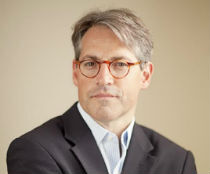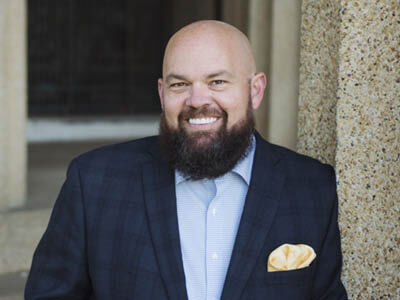World leaders step up efforts behind the scenes at the UN to end the war in Sudan
News > International News

Audio By Carbonatix
1:21 AM on Friday, September 26
By EDITH M. LEDERER
UNITED NATIONS (AP) — Behind the scenes at the annual gathering of world leaders at the United Nations, key countries and regional organizations have been coordinating efforts to try to end the horrific war in Sudan, which has created the most devastating humanitarian and displacement crisis in the world.
Alan Boswell, the International Crisis Group's project director for the Horn of Africa, said this year’s high-level General Assembly meeting, which ends Monday, could be “make-or-break” for stopping the conflict.
“For the first time since the war broke out more than two years ago, Sudan’s most influential outside powers agreed this month on a roadmap to end the war,” he said in a statement. “Now comes the huge task of trying to convince Sudan’s warring parties to stop fighting.”
Sudan plunged into conflict in mid-April 2023, when long-simmering tensions between its rival military and paramilitary commanders broke out in the capital, Khartoum, and spread to western Darfur and much of the rest of the country.
At least 40,000 people have been killed, nearly 13 million displaced and many pushed to the brink of famine with over 24 million acutely food insecure, U.N. agencies say.
In a key development after a summer of discussions, the United States, Saudi Arabia, Egypt and the United Arab Emirates issued a joint statement on Sept. 12 calling for a humanitarian truce for an initial three months to deliver desperately needed aid throughout Sudan followed by a permanent ceasefire.
Then, the four countries said, “an inclusive and transparent transition process should be launched and concluded within nine months to meet the aspirations of the Sudanese people towards smoothly establishing an independent, civilian-led government with broad-based legitimacy and accountability.”
The group, calling themselves the Quad, met Wednesday on the sidelines of the assembly to discuss implementation of their roadmap.
Another meeting also focused on de-escalating the war was convened Wednesday by the African Union, the European Union and the foreign ministers of Germany, France and the United Kingdom. Representatives of the Quad, a dozen other countries, the Arab League, the United Nations and the east Africa regional group IGAD also attended.
A statement issued by the AU, EU, France, Germany, UK, Denmark, Norway and Canada after the meeting urged the warring government and paramilitary Rapid Support Forces to resume direct negotiations to achieve a permanent ceasefire.
It welcomed the Sept. 12 statement by the Quad, and expressed support for efforts by the AU and the EU “to coordinate international and bilateral efforts to pressure all Sudanese parties towards a ceasefire, humanitarian action and political dialogue.”
The statement strongly condemned the military involvement of unnamed foreign countries and “non-state actors” and urged them to stop fueling the conflict.
U.N. Secretary-General Antonio Guterres, in his “State of the World” speech at the opening of the global gathering Tuesday, made a similar appeal to all parties, including unnamed countries in the vast assembly chamber: "End the external support that is fueling this bloodshed. Push to protect civilians.”
“In Sudan, civilians are being slaughtered, starved, and silenced,” Guterres said. “Women and girls face unspeakable violence.”
The deputy prosecutor of the International Criminal Court said in July that the tribunal believes war crimes and crimes against humanity are taking place in Darfur, where the RSF controls all regional capitals except el-Fasher in North Darfur.
The RSF and their allies announced in late June they had formed a parallel government in areas the group controls. The U.N. Security Council rejected the plan, warning that a rival government threatens the country’s territorial integrity and risks further exacerbating the ongoing civil war.
Sudan’s Transitional Prime Minister Kamil El-Tayeb Idris accused the RSF of “systematic killing and torture and looting and rape and humiliation and the savage destruction of all the components of life,” part of its effort “to control Sudan, to plunder its wealth and to change the demographics of its population.”
Speaking to the assembly Thursday, he stressed the country’s sovereignty and said the government is committed to a Sudanese-developed roadmap including a ceasefire, “accompanied by the withdrawal of the terrorist Rapid Support militia from the areas and cities it occupies” including el-Fasher.
El-Tayeb said the civilian government he formed will engage in a national dialogue “that includes all political and societal forces to lay the groundwork for elections that are free and fair, and to engage positively with regional and international communities.”
Chad’s Prime Minister Allah Maye Halina told the General Assembly on Thursday that his country, which borders Darfur, is hosting over 2 million refugees from Sudan, 1.5 million of whom arrived since April 2023. He appealed to the international community to help support the refugees, saying more keep arriving.
“We are convinced that the current crisis in Sudan cannot be resolved through weapons, but rather through peaceful means, through inclusive inter-Sudanese dialogue,” he said, stressing that Chad is strictly neutral in the conflict and is available to contribute to any initiative to end the war.









